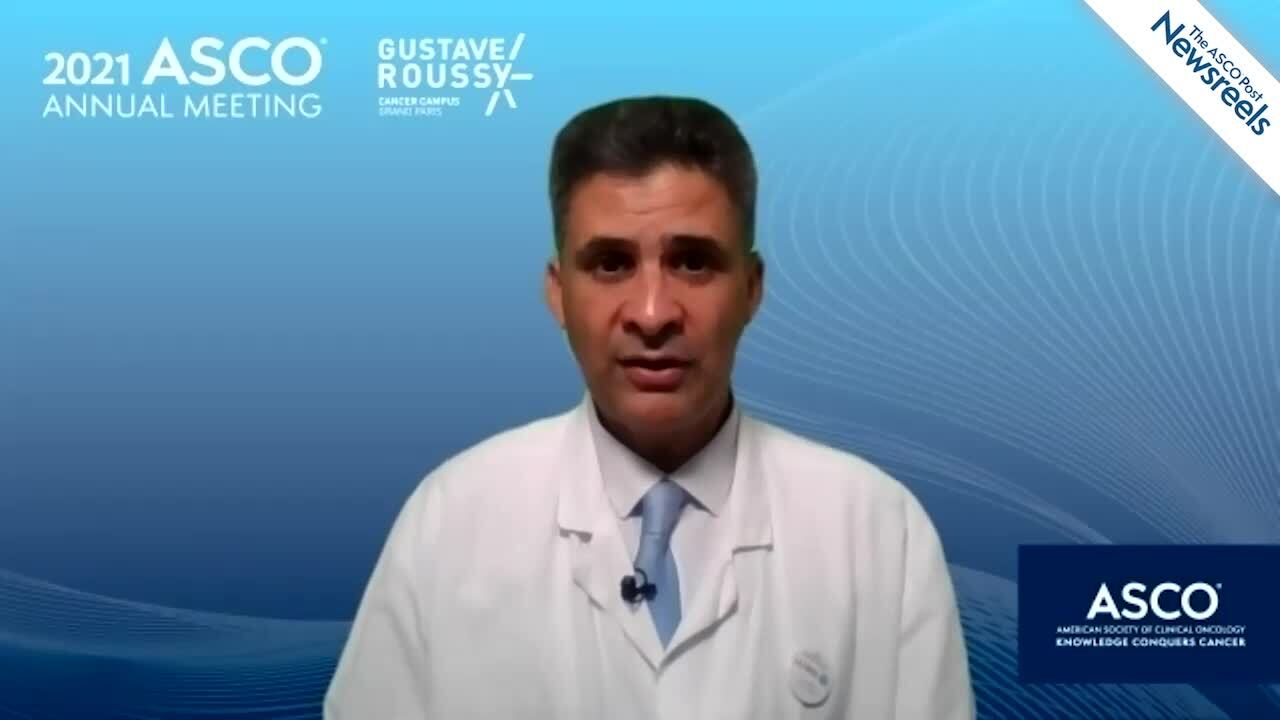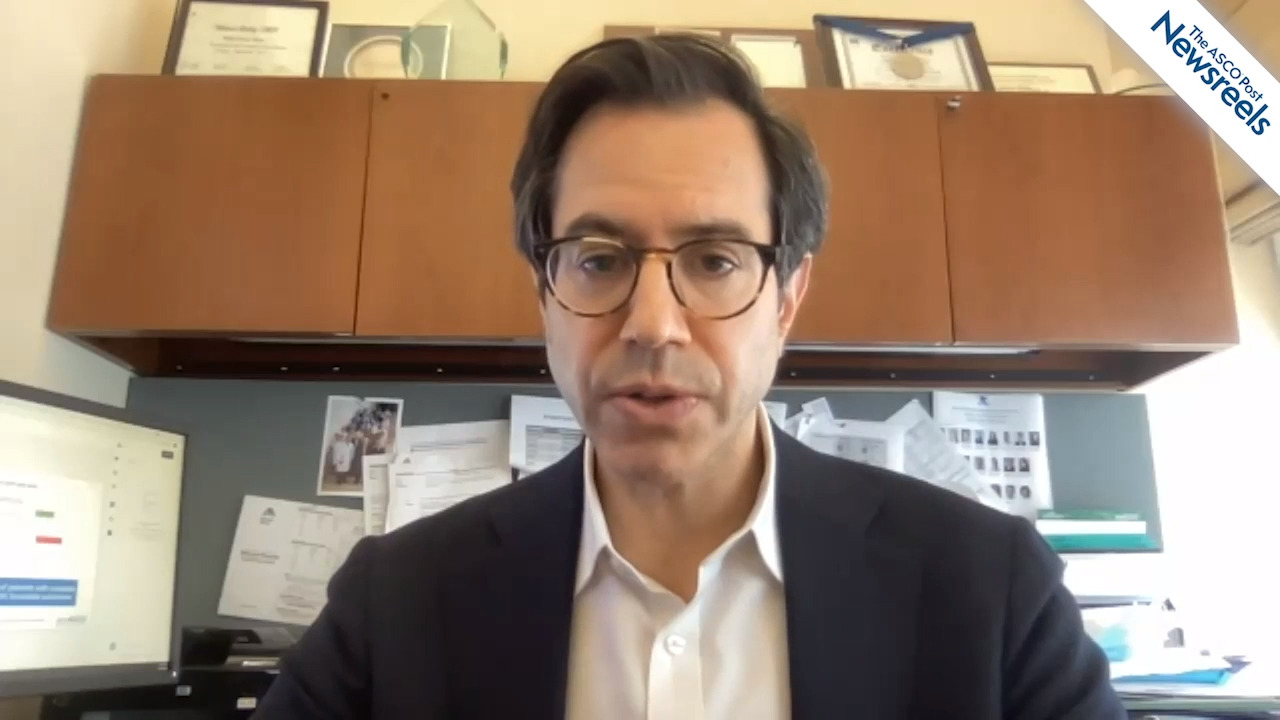Pasi A. Janne, MD, PhD, on NSCLC: Patritumab Deruxtecan to Target HER3
2021 ASCO Annual Meeting
Pasi A. Janne, MD, PhD, of Dana-Farber Cancer Institute, discusses study findings that show patritumab deruxtecan is effective in patients with EGFR-mutated and inhibitor-resistant non–small cell lung cancer. Dr. Janne also explains why targeting HER3, a mutation expressed in most EGFR-altered cancers, is a beneficial treatment approach (Abstract 9007).
The ASCO Post Staff
Terry P. Mamounas, MD, MPH, of the University of Florida Health Cancer Center, discusses results from the NRG Oncology/NSABP B-42 study, which examined the Breast Cancer Index and its ability to predict whether extended treatment with letrozole benefits patients with hormone receptor–positive breast cancer (Abstract 501).
The ASCO Post Staff
Karim Fizazi, MD, PhD, of Institut Gustave Roussy, discusses first results from the phase III PEACE1 trial, which showed that abiraterone plus androgen-deprivation therapy and docetaxel improves radiographic progression-free survival in men with de novo metastatic prostate cancer (Abstract 5000).
The ASCO Post Staff
Geoffrey J. Lindeman, MBBS, PhD, of Peter MacCallum Cancer Centre, discusses results from the phase II VERONICA study, which compared venetoclax plus fulvestrant with fulvestrant alone in women with estrogen receptor–positive, HER2-negative, locally advanced or metastatic breast cancer who experienced disease recurrence or progression during or after treatment with CDK4/6 inhibitor therapy (Abstract 1004).
The ASCO Post Staff
Sumanta K. Pal, MD, of City of Hope, discusses results from a phase II study that sought to determine whether adding berzosertib, a selective ATR inhibitor, to the standard upfront chemotherapy regimen of cisplatin with gemcitabine may improve outcomes in patients with metastatic urothelial carcinoma (Abstract 4507).
The ASCO Post Staff
Matt D. Galsky, MD, of the Tisch Cancer Institute at Icahn School of Medicine at Mount Sinai, discusses results from a phase II trial designed to test gemcitabine and cisplatin plus nivolumab as neoadjuvant therapy in patients with muscle-invasive bladder cancer and to better predict benefit in those who opted out of cystectomy (Abstract 4503).





